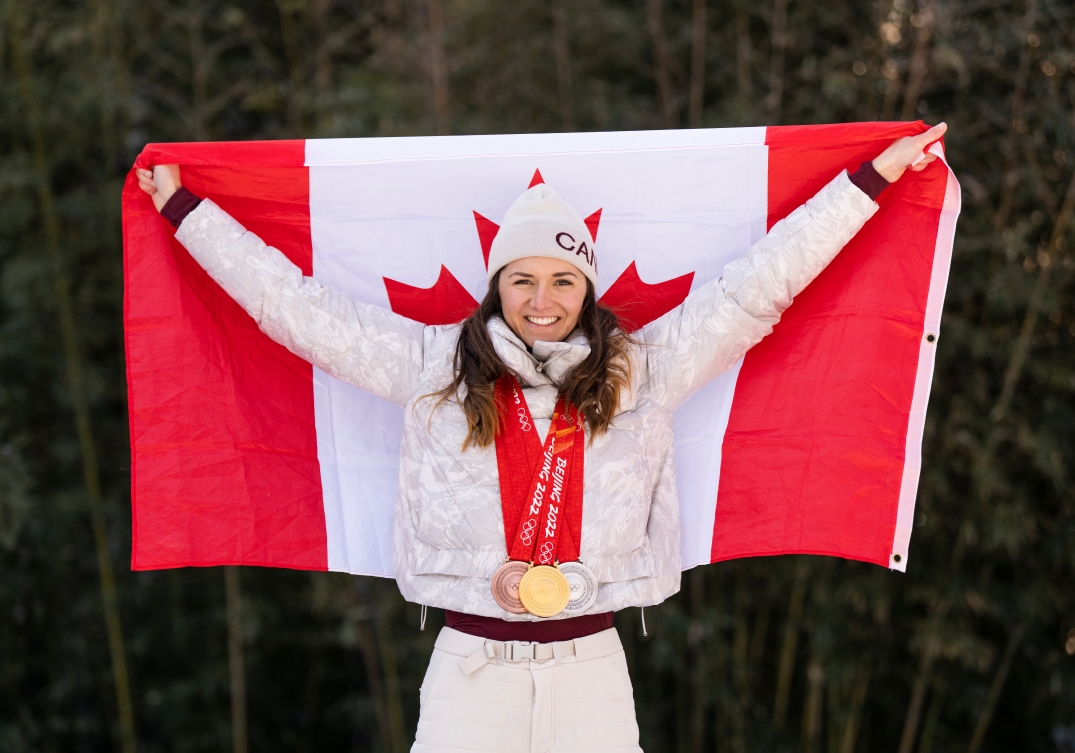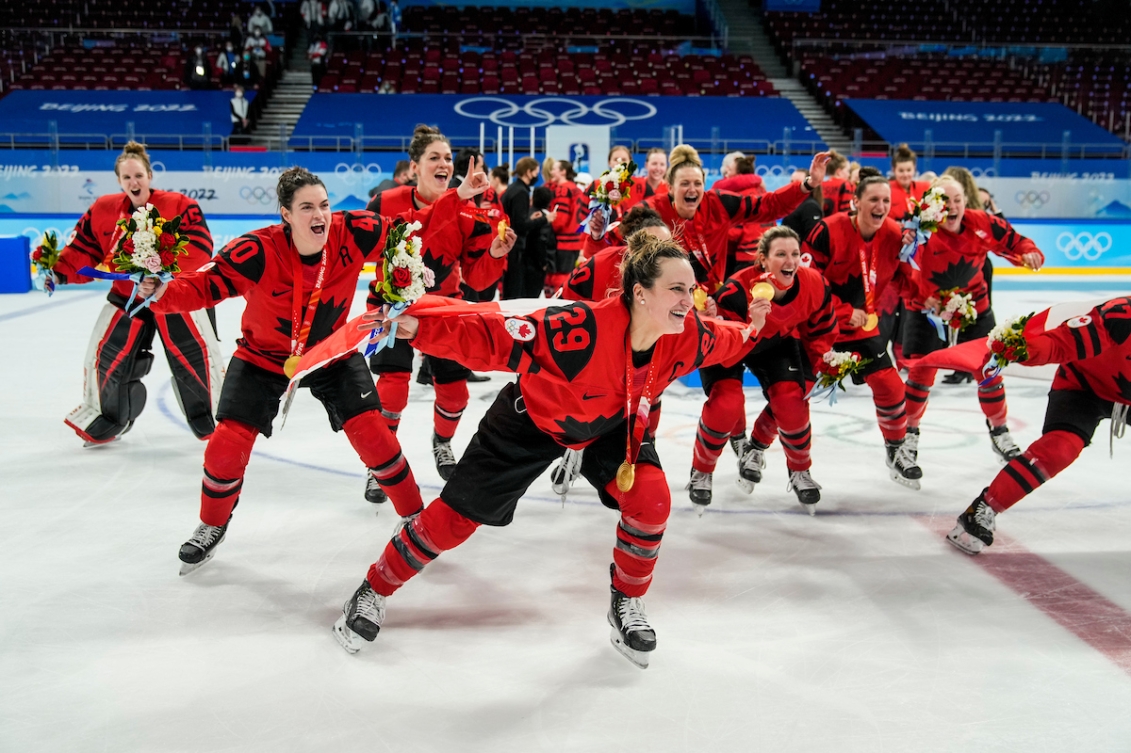

After 19 days of competition and 109 events across 15 sports, 2,871 athletes representing 91 countries will be heading home. The XXIV Winter Olympic Games have come to a close.
These Olympics were broadcasted in over 220 countries. Including advertising rights, over a billion dollars were generated for the International Olympic Committee by these games.
Canada won 26 medals in 2022, tied with Vancouver 2010 for the second most medals ever won at a Winter Olympics. This includes Canada’s first ever medal in ski jumping, its 12th medal in curling and its 23rd medal in ice hockey – the latter two of which are the most by any country across all Winter Olympics.
Canadian athletes are bringing home six snowboarding medals, two more than any other nation this year. Cancer survivor Max Parrot led the way for the Canadians with a gold medal in men’s slopestyle and a bronze in men’s big air.
Six Canadians won multiple medals in Beijing: Isabelle Weidemann with three; Steven Dubois with three; Max Parrot with two; Eliot Grondin with two; Meryeta O’Dine with two; and Ivanie Blondin with two. Weidemann was Canada’s flag bearer for the closing ceremony on Sunday.

Brad Gushue’s team won bronze in men’s curling this year. Sixteen years ago, Gushue and teammate Mark Nichols were a part of the Canadian team who won gold at the Turin 2006 games. This gap between podium placements is the longest ever for any athletes at the Winter Olympics.
Both Charles Hamelin and Marie-Philip Poulin, Canada’s opening ceremony flag bearers, won medals. For Hamelin, it was his fifth and final Olympics, where he won his sixth Olympic medal, tying him with long track speed skater Cindy Klassen as the most decorated Canadian Winter Olympian ever. In the gold medal women’s hockey game against the United States, Poulin scored twice, leading Canada to its fifth gold medal in the event – the most all-time in the event by far. Since Vancouver 2010, Poulin scored in every gold medal game. Even more impressively, she’s scored seven of Canada’s ten goals in the last four gold medal games.
Poulin was the second leading scorer in the tournament, only one point behind teammate Sarah Nurse. Canadians Nurse, Poulin, Brianne Jenner, Natalie Spooner, Claire Thompson and Sarah Fillier were the top six point scorers. Eight of the top 10 were Canadians and every single Canadian player scored at least one point. Let me repeat that for you: every Canadian player in these Olympic games had at least one point. If that doesn’t prove the dominance that Canada’s women’s hockey team has over the sport, I don’t know what does.


In a brilliant display of sportsmanship on Friday, Dutch speed skater Kai Verbij backed off to avoid a collision with Canadian Laurent Dubreuil. This allowed Dubreuil to claim a silver medal in the men’s 1,000 metre event.
Sadly, Canada failed to win a medal in figure skating for the first time in 42 years. When Canada didn’t medal at the 1980 Winter Olympics in Lake Placid, the Soviet Union and East Germany lead the medal table that year – two countries that cease to exist today.
Some of Canada’s top favourites for medals in Beijing didn’t end up on the podium. In men’s hockey, Canada’s roster finished in sixth place. It was Canada’s first Olympics without a medal in the event since Turin 2006. Jennifer Jones’ curling team didn’t make the playoffs following a disappointing round robin stage. Jones is a curling icon and faced her failure with grace and true sportsmanship.
After Gushue’s team lost in the semi-final game, he broke down when he saw everybody watching from home in Newfoundland and Labrador. Rachel Homan shared on Twitter about the “deepest of black holes” she was experiencing after she and teammate John Morris were eliminated from medal contention.
When an athlete fails to meet the expectations we have for them, they feel immense disappointment. It’s a pressure that most of us will never understand – having the weight of an entire country’s hopes on your shoulders.
Those who sink their teeth into gold medals will inspire a generation of Canadians. But I’d argue that the athletes who return empty-handed are also an inspiration to us all.
We must be proud of each and every Canadian athlete who showed up in Beijing – even for those who finished at the bottom of the standings. Training for months, even years, of their lives, fighting through personal adversity and two years of a pandemic. These athletes sacrificed time away from their children, significant others and closest friends in order to prepare. They travelled to the other side of Earth, through the strictest COVID-19 protocols in the world and without their family, all to wear a red maple leaf on their back and try their hardest at the sport they love.
Maybe we could all use a little more Olympic spirit in our lives.
